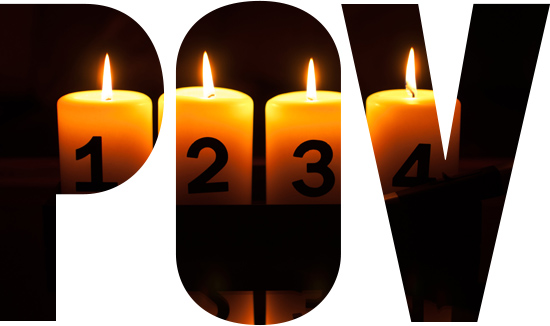POV: During Advent, a Call to Remember the Uninsured
Restricting Medicaid, many states ignore Jesus’s teaching

Advent, the liturgical run-up to Christmas, is a time of joyful waiting. Millions of Christians are lighting Advent candles in preparation for celebrating the birth of Jesus and the expectant waiting of his Second Coming. Meanwhile, a significant segment of the population is patiently waiting with equal hope and expectation that 2015 will bring the Affordable Care Act’s proffered expansion of Medicaid, the federal/state health program for the poor.
Yet worrying reports from the Kaiser Family Foundation reveal that 23 states are not expanding Medicaid coverage. That refusal has resulted in “coverage gaps” in which families or individuals who make too much to receive Medicaid (about $10,000 a year too much for a family of three) still can’t afford health insurance, even with marketplace tax credits.
Those who fall within the coverage gap are white, black, Hispanic, and primarily ages 19 to 54. More than 66 percent have a family member who works full- or part-time. Kaiser data shows that states with large black populations, such as Florida, Georgia, and Texas, are not expanding Medicaid, while states with large Hispanic populations, such as California, New York, and Arizona, are. The former may be symptomatic of more pervasive social and racial disparities, given the anti–African American attitudes revealed by recent decisions not to indict cops in Ferguson and New York City who killed unarmed blacks.
What is the connection between Advent’s expectant longing and Medicaid expansion? While the Christian narrative tells the story of the incarnation, death, and resurrection of Jesus, all related to the story of both the gift and sacrifice of salvation, most people forget Jesus’s profound subversive activities during his ministry. One of the most subversive was his healing of those on the margins of society and religious life, regardless of their socioeconomic and racial status. Jesus brought physical healing and restoration to a (new) community life for the individual. Restoring human dignity and advocating human flourishing was not popular with those in control. These healing (and, thus, political) acts were a major source of the controversy that surrounded Jesus.
Who are those on the margins of society today that Jesus would have freely healed? Or, to use Jesus’s phraseology, who are “the least of these”? In the context of health, those on the periphery are the estimated four million Americans who fall within the coverage gap in states that refuse to expand Medicaid. It is primarily Hispanic and black residents of those states, working either full- or part-time and making too much to benefit from Medicaid, yet not enough to pay monthly bills.
The Affordable Care Act mitigated some of the anxiety that comes with being uninsured. Millions of Americans in states that have expanded Medicaid no longer need to fret as much about the costs of prescription drugs, hospitalization, and a myriad of other health-related services to which they did not have access before. While debates rage over the estimated impact the ACA will have on both health and the US economy, it is important to remember that health reform is not, and will never be, perfect.
Health care reform will be molded, altered, added to, and subtracted from over time, in much the same way Jesus’s followers have molded, interpreted, and suffered through understanding exactly who he was and is, and what his words meant and can possibly mean now.
We celebrate the birth of Jesus, and look at his life and ministry for hope and encouragement throughout the year. We anticipate the birth of the man who loved with relentless affection, restored human dignity, and healed the bodies, minds, and spirits of the marginalized, the outcast, and those in need of transformed lives of love and action. As we light our candles this Advent season, let us light another candle in solidarity with those who wait for health insurance in those 23 states. The hope and needs of the uninsured are our hope and needs, and we are collectively responsible in meeting them. As Jesus said in one of his parables, “Truly I tell you, just as you did not do it to one of the least of these, you did not do it to me.”
Joshua Niforatos (STH’14), now a medical student at Cleveland Clinic Lerner College of Medicine, can be reached at niforaj@ccf.org.
“POV” is an opinion page that provides timely commentaries from students, faculty, and staff on a variety of issues: on-campus, local, state, national, or international. Anyone interested in submitting a piece, which should be about 700 words long, should contact Rich Barlow at barlowr@bu.edu. BU Today reserves the right to reject or edit submissions. The views expressed are solely those of the author and are not intended to represent the views of Boston University.
Comments & Discussion
Boston University moderates comments to facilitate an informed, substantive, civil conversation. Abusive, profane, self-promotional, misleading, incoherent or off-topic comments will be rejected. Moderators are staffed during regular business hours (EST) and can only accept comments written in English. Statistics or facts must include a citation or a link to the citation.